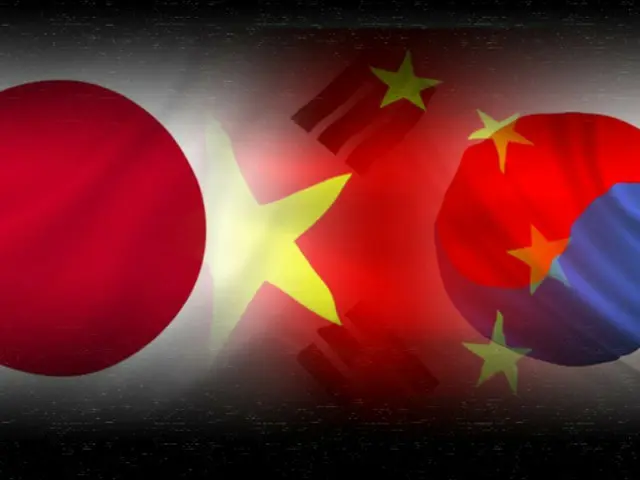In an editorial published on the 0th, the newspaper called on the South Korean government to "maintain a cautious and thoughtful attitude so that the rough waves of the Sino-Japanese conflict do not reach South Korea." Meanwhile, in South Korea, the Chinese government is telling its people,
As a result of China's call to refrain from traveling to Japan, there is a view that South Korea will replace Japan as the most popular overseas travel destination in China.
At the House of Representatives Budget Committee on the 7th of this month, Prime Minister Takaichi responded that a Taiwan emergency could become a "situation of existential threat" in which Japan could exercise the right of collective self-defense if it involves the use of force.
China has responded by urging people to refrain from traveling to Japan, postponing the release of Japanese anime, and effectively suspending the import of Japanese seafood, among other economic countermeasures.
The impact on the Japanese economy will be immeasurable. South Korea is also closely watching the situation as the conflict between Japan and China intensifies. In an editorial published on the 19th, the South Korean newspaper JoongAng Ilbo said, "The current conflict between China and Japan is not a sudden one.
"This should be seen as a reaction to the strengthening of cooperation between South Korea, the United States and Japan in response to China, Russia and North Korea, which have strengthened their ties amid the US-China strategic competition," he said.
In an editorial published on the 20th, the South Korean newspaper Hankyoreh said, "This conflict is a tragic one for the Chinese people, who bear the scars of a modern history full of setbacks and humiliation.
"This is a serious problem where the 'collective identity' of the Japanese people has come into direct conflict with the 'security awareness' of the Japanese people that has been formed over a long period of time since the Meiji era," he said.
"As this is a difficult issue, both countries should exercise the utmost self-restraint in any irresponsible actions that could increase military tensions in the region, and should resolve the issue through dialogue and compromise, even if it takes time," he said.
Regarding recent conflicts between Japan and China, the South Korean media outlet E-Daily reported, "The dispute over the sovereignty of the Senkaku Islands in 2010, the dispute over the Terminal High Altitude Area Defense (THAAD) missile system in 2017,
"The situation is similar to that of the Senkaku Islands issue," he said. In 2010, a fishing boat collision occurred off the coast of the Senkaku Islands in Okinawa Prefecture, over which China claims sovereignty, and as a countermeasure, China then banned the import of rare earths (
Furthermore, when South Korea deployed the US military's THAAD system domestically in 2017, China reacted strongly, taking measures such as restricting the inflow of South Korean films and travel by Chinese nationals.
Edaily reports that the current situation is similar to that time, with British economic analysis firm Chang worried that "if the sanctions that began with a travel ban spread to the economic sector, such as suspending rare earth exports, the conflict could become prolonged."
While the Chinese government has called on its citizens to refrain from traveling to Japan, Chinese tourists are turning to Korea as their travel destination, boosting demand for the Korean tourism industry.
The view is that the stock prices of major Korean travel agencies, hotels, department stores and other related companies have been rising recently. The Korean newspaper Hankyoreh reported that "Japan is the most popular country for Chinese people.
"It was a travel destination, but Korea is filling that void," he said. There are concerns that the conflict between Japan and China will cast a shadow over cooperation among the three countries. The Chinese government is planning to hold a summit in Macau on the 24th of this month.
Mao Ning, spokesperson for the Chinese Ministry of Foreign Affairs, said at a press conference on the 20th, "Japanese leaders have publicly made false statements about Taiwan, hurting the feelings of the Chinese people,
"It challenged the postwar international order, destroyed the foundation and atmosphere for cooperation among China, Japan and South Korea, and undermined the conditions for holding the conference," he said.
In the aforementioned editorial, the JoongAng Ilbo called on the South Korean government to
"We need to activate the high-level strategic communication channels agreed upon in the past and manage the current situation of rising tensions in Northeast Asia so that it does not escalate further," he said.
President Lee Jae-myung, who will be attending the G20 Summit in South Africa on the 22nd and 23rd of this month, will be accompanied by Chinese Premier Li Qiang.
"There will be an opportunity to meet with Prime Minister Takaichi. I hope that you will actively utilize this opportunity for communication between the leaders."
2025/11/21 11:24 KST
Copyrights(C)wowkorea.jp 2

